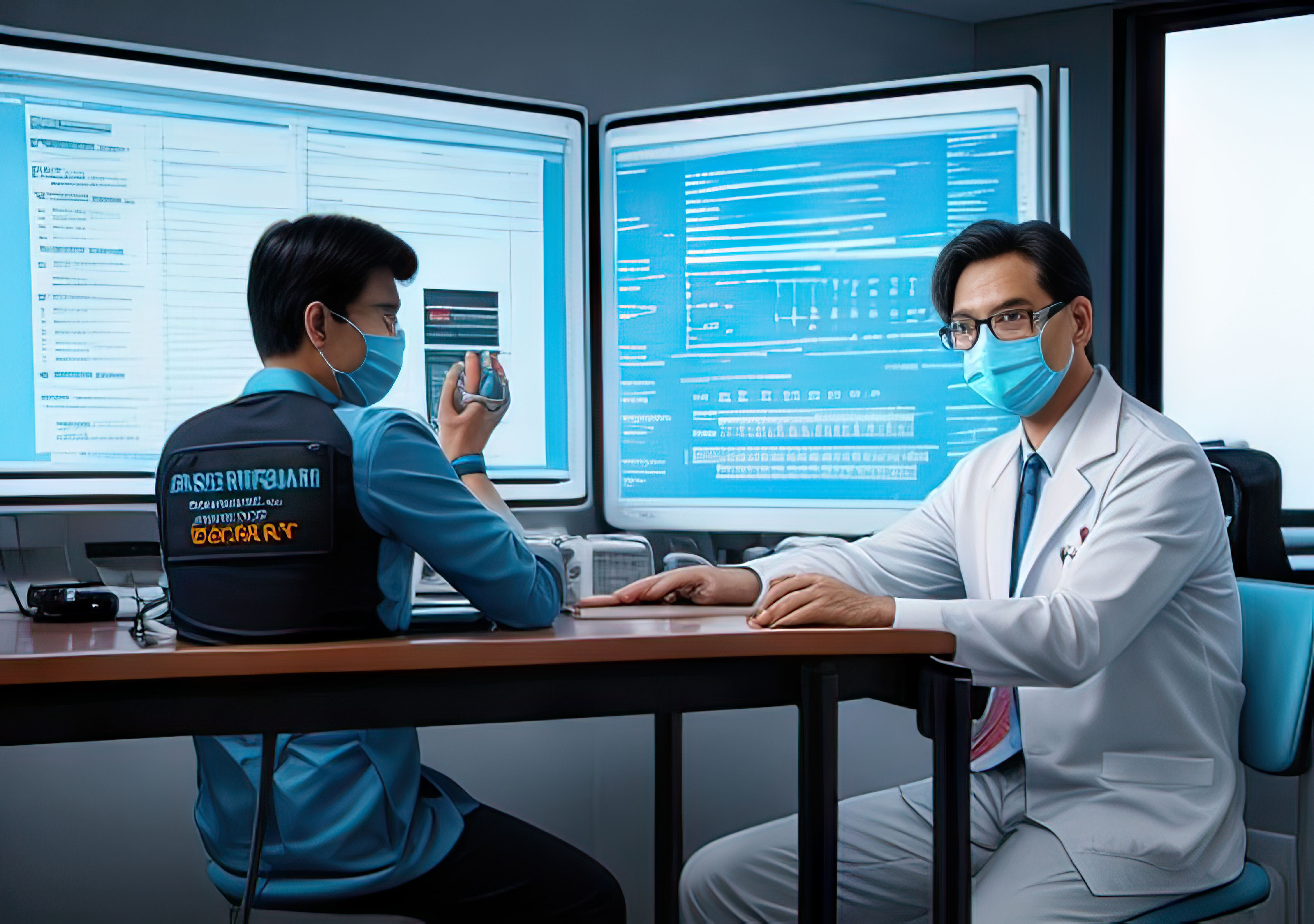
Why Clean Claims Matter? Tips for First-Pass Claim Approval.
Artificial Intelligence (AI) is no longer the talk of the future, it is the present. Artificial intelligence has made its way in almost all the fields, and healthcare is no different. Making its significant impact in medical coding, AI has been transformative.
Traditionally, the medical coding process was a manual, time consuming task, prone to errors. Enters AI-driven medical coding- a game changer that has revolutionized how healthcare providers have been managing data, streamlining operations, and improving patient care. So how exactly is AI in medical coding shaping the healthcare industry? Keep reading to explore its impact and potential.
What is AI-driven Medical Coding?
AI-driven medical coding utilizes the power of machine learning (ML), natural language processing (NLP), and other artificial intelligence technologies. These automate the medical coding process. By not fully relying on human coders that review patient records and then assign codes, AI analyzes clinical documentation, extracts relevant information, and assigns accurate codes in a fraction of the time.
To understand this with a real-world example- When a doctor documents a patient’s visit, an AI-powered system is able to quickly go through the notes to identify key terms of diagnoses (like diabetes) or procedures (like MRI), and assigns to it the appropriate medical codes (ICD-10, CPT, or HCPCS codes). The dual benefit is that these tools speed-up the process, as well as lower the risk of human error.
How Is Artificial Intelligence Transforming Medical Coding?
1) Higher Accuracy Chances
One of the most significant advantages of AI in medical coding is the improved accuracy of codes assigned to patient records. Artificial intelligence systems can analyze vast amounts of data, recognize patterns, and ensure that the right codes are selected for each case. This reduces chances of errors that cause billing issues, denied claims, or compliance problems.AI-backed tools double-check the coding process, catching mistakes that otherwise go unnoticed.
2) Improved Efficiency
As a repetitive and labor-intensive task, medical coding can utilize automation processes that drastically reduce the time it takes to assign codes to patient records. Instead of depending on manual input for each diagnosis and procedure, AI can process the medical data in a fraction of the time. This results in faster claims processing, quicker reimbursement, and less administrative burden on healthcare providers.
3) Faster Turnaround Time
Manual coding takes hours and even days to complete, depending on the complexity of the case. AI processes huge amounts of data in mere seconds, significantly reducing the turnaround times. This efficiency lets healthcare providers focus more on patient care instead of being burdened by administrative load.
4) Expense Minimization
Automating medical coding can cut down the costs for healthcare organizations. Fewer staff members are needed for manual coding. This allows hospitals and medical centers to allocate their resources elsewhere. Fewer coding errors and reworks lead to fewer denied claims, resulting in quicker payments from the insurance companies. These savings ultimately contribute towards a more sustainable and cost-friendly healthcare system.
5) Better Regulatory Compliance
Compliance with regulations is non-negotiable in the healthcare sector. Various regulatory bodies such as HIPAA (Health Insurance Probability and Accountability Act), and CMS (Centers for Medicare & Medicaid Services) regulate the healthcare sector. AI helps healthcare organizations be compliant by seeing that the codes entered are up-to-date and correctly assigned.
6) Scalability
Volume of the medical data that has to be processed grows as the healthcare organization grows. Artificial intelligence driven coding systems can easily scale to handle increased workloads without compromising the accuracy or the speed.
7) Greater Patient Outcomes
AI-powered medical coding doesn’t just help administrative processes, it indirectly benefits the patients as well. With a more accurate and efficient coding approach, healthcare providers are able to quickly access and analyze the patient records. This leads to a faster diagnosis, personalized treatment plans, and better overall care. Precise coding leads to patients’ medical histories well-documented, leading to improved care across different providers and healthcare settings.
8) Lowered Fraud
AI tools detect fraudulent practices by identifying suspicious patterns in coding and flagging them for review. This proactive approach improves integrity in the billing process.

The Role Of Machine Learning In AI-Backed Coding
At the core of AI-powered medical billing is machine learning (ML). ML algorithms learn from large datasets, including previous coding examples, medical terminology, and case studies, to refine their decision-making over time. The more data AI systems process, the better they get at predicting the correct medical codes for new patient records.
A real-world example is-If a medical coder has wrongly assigned a code in the past, AI systems learn from that mistake to avoid repetition. With time, AI gets more sophisticated, offering highly accurate coding predictions that align with the latest medical standards.
What Does The Future For Medical Billing Look Like?
As the technology is on a never-ending rise, healthcare providers and professionals can expect more innovative solutions for medical coding in the future. For instance, natural language processing (NLP) can enable AI systems to understand the complex medical texts and translate them into precise codes. As AI tools have advanced, they can take on more decision-making tasks of predicting the outcome of treatments, or recommending appropriate procedures depending upon the patient records.
Some trends to lookout for are:
- Real-time coding during patient visits, allowing for instant billing and record updates.
- Advanced NLP capabilities that will better understand context, nuances, and even handwritten notes that improve coding.
- Predictive analytics tool identifies trends of common diagnosis, or treatment patterns, helping healthcare providers in making data-driven decisions.
- As AI has become easily accessible and affordable, its adoption in medical coding is going to expand across healthcare organizations of all sizes.
AI-backed medical coding is no longer a futuristic concept to look forward to- it is here, and is transforming the healthcare industry. By automating a traditionally labor-intensive process, AI is improving accuracy, lowering costs, and enabling healthcare providers to focus on patient care, the most concerning aspect of healthcare.
As technology continues to advance, AI-driven medical coding has become increasingly important. It is creating a more efficient, accurate, and patient-centric healthcare system.
The future of healthcare is intelligent, and AI-driven medical coding is leading the way. Are you ready to embrace the change?




